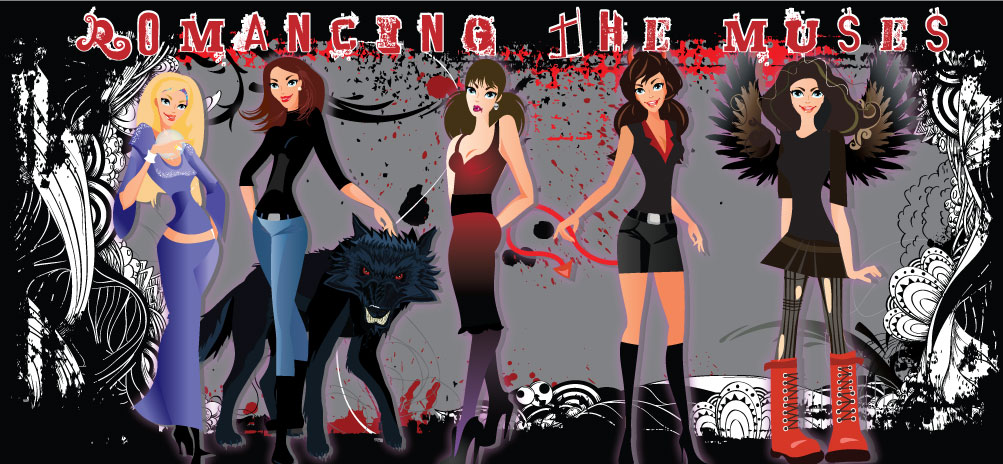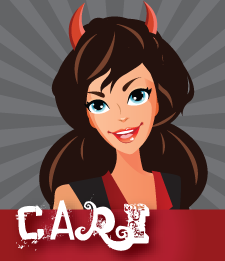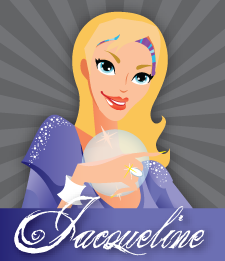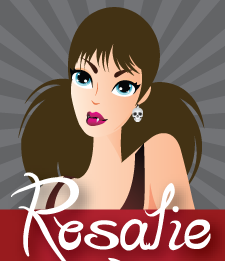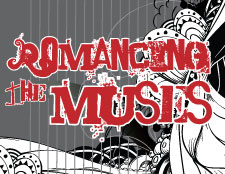It seems any author I talk to out there has the same gripe,
issue or in my case whine - "Do we really have to promote?"
and the other half of that is "Where do I start?".
Yes I know I need to promote, but unfortunately I am already
about 30 hours short on time each week so how do I go about it?
I don't have the right answers so I found someone that can lay it
all out pretty and have it make sense!
I'm thrilled to have Author / Reviewer / Publicist Roxanne Rhoads
here today to share with us some of the how's and why's to this
world of writing and selling.
Promotion and Authors
By Roxanne Rhoads
Promotion- it’s a bad word for many authors…downright evil… but a necessary evil.
A small percentage of authors revel in the spotlight and have no problem talking, promoting, and selling.
But most of us…well we’d rather be writing. And not writing about our books or ourselves, just writing the books.
What happened to the days when the reclusive author typed away in their little hermit like abode, sent the manuscript off to a publisher who handled everything and the author sat back and got rich while writing more books?
I think that image is a fairy tale, I’m not sure if that was ever a reality at all but when I was young that’s how I envisioned the author’s world. Then I started writing books- and thought that once a publisher accepted and published my work the hard part was over. Boy was I wrong.
Thanks to the internet and technology more books than ever are being published every day- and it’s very easy to get loss in the ever growing a sea of pages and book covers.
What can an author do to stand out from the crowd?
Promotion.
Yes, there’s that damn word again but honestly it’s what can make or break your book. The other, I swear, is simply luck, and maybe a pact with the devil.
I’ve seen amazing books totally tank in sales and crap books, poorly written with sentences that run on and are hard to read, make the bestseller list on Amazon, repeatedly.
Why? Promotion.
For the past several years I have been on a quest to learn everything I can about the book business and book world, from all angles- author, editor, publicist, reviewer, book blogger, even publisher (I self-published a short story collection this year)- and I’ve learned a lot.
So what words of wisdom can I share with authors who are looking for the secrets to book success?
First of all- web presence.
What’s the first thing many people do when they hear about something- whether it’s a book, business, or new product?
They Google it.
That’s why an author should have a website- a good one, a professional one that showcases their author/book brand. If you write paranormal books your website should have a hint of the paranormal in it- should it showcase screaming skulls and blood dripping fangs? Probably not. Keep it tasteful and professional while making it clear you are a paranormal author, or romance author, or whatever.
Your website can sell you and your books 24 hours a day, 7 days a week all over the world. Nothing else can reach as wide an audience 24/7.
The author website should have 6 key things to be successful- a way to contact you, your bio, your bookshelf (if you write in different genres or have a couple different series then you should have separate pages for each genre or series), a calendar or schedule of author appearances whether in the real world or online, a page of fun stuff and/or links that relate to your books, and your media page which should contain an author photo, media ready bio, sample author Q and A, and your most recent book cover and blurb.
I also suggest having a regularly updated blog and newsletter that readers can subscribe to.
Also be sure to utilize Author Central at Amazon, you can add your links and blog feed to your author page.
Which brings me to the next thing an author needs to utilize…social media- Twitter, Facebook, Goodreads- these are some of the most popular social media outlets for connecting with readers and other authors. The idea is to build is solid foundation of reader and author followers. Do this by posting fun and informative tweets and updates- not just promo. And you can link all your accounts together through apps at Twitter and Facebook or through outside apps like HootSuite.
An author should also stay up to date on what’s popular and working in the online book world- for example: book trailers, book soundtracks, Twitter parties, virtual book tours.
Do book trailers or soundtracks sell books? In my opinion no, but they are great tools for sharing your book (these would fall under that fun stuff category above to include on your website).
Virtual book tours, however, are one of the best ways to spread the word about your book. You can reach a worldwide audience without ever leaving your home at a tiny fraction of the cost of a real world book tour.
The goal is not just book sales but reaching out and gaining new followers. After a book tour you should see the subscribers list to your newsletter has grown, you have more Twitter and Facebook followers, and the number of blog followers you have has increased- and hopefully your book sales have skyrocketed.
So what do you do during a book tour? You’ll write guest posts, fill out and interviews, and sometimes participate in live chats and podcast and radio interviews at different blogs and sites around the web. The book tour company will schedule everything.
The key is choosing the best company for your book- find a company that has handled many books in your genre and that shows a good track record. If you only see one or two previous tours done by this company perhaps you should move on to the next book tour company- and new ones pop up every day. Do your homework before laying down the cash. While no book tour business can guarantee sales or great reviews they should be able to provide you with proven capability, organization and a certain amount of tour stops based on what you paid for.
Are real live book events things of the past? No, not at all.
By all means go out to local book stores, libraries, seasonal and holiday events and set up signings, schedule fun events that will bring people in- work with other authors to create group things that draw a crowd.
For instance if you write paranormal books- get out there at Halloween events and sell your stuff. Set up tables for sales and signings at Halloween reading and parties at local libraries, (schools too if your book is kid oriented), hayrides, even haunted houses. Work with your community to promote your book. You might be surprised at how many local businesses and event planners will be thrilled to have something unique and special (like an author) be a guest at their holiday event.
And be sure to bring business cards, bookmarks or even the hot new thing in real world book promo- book trading cards, to all your live book promotions. Pass them out at local libraries and bookstores too.
The key is- get out and promote. You are not going to get anywhere as an author being a hermit and hiding in your house tapping away at the keys of your computer.
Publication is only the beginning of the process…promotion is the road to success.
Thanks again, Roxanne!!

